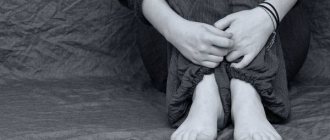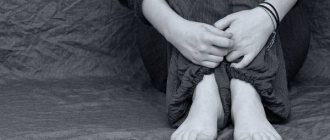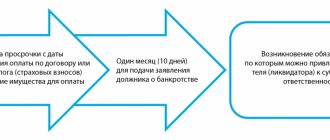Never before has photography been so easy and fun. Not only the owner of a camera, but even an ordinary smartphone can feel like a real photographer. But the threat of illegal use of photographs was also not so significant before. The Internet has become a platform where it is not customary to ask permission from content owners to use it.
What to do if you suddenly found your photo on a website or on someone else's blog? What is the threat to a violator who uses someone else’s photographs without permission? And how can you copyright your photos? Evgenia Galkina answered these questions to the FAN .
Photo from the personal archive of Evgenia Galkina /
Law on video recording in public places, general information
According to the Constitution of the Russian Federation, every citizen has the right to collect, receive, distribute and transmit information that is in the public domain. In addition to the Constitution of the Russian Federation, Russia has a number of laws that allow for legal regulation in the information sphere. Such laws include the Federal Law “On Information..”, which regulates the basic concepts in this area, the rules and restrictions applied to filming in public places, as well as the Law “On the Protection of Consumer Rights,” which can indirectly be related to the regulation of this area .
Filming at strategic sites
There is no rule prohibiting filming at strategic sites. The resolution appeared in Soviet legislation, but is not applied today. The secret nature of certain information (objects) is determined by the Federal Law “On State Secrets”. Here in article 5 is a list of relevant information. It is associated with objects:
- Military character.
- Defense sphere.
- Of a sensitive and particularly important nature.
- Scientific and technical industry.
- Infrastructure related to state security.
Another legal source is Presidential Decree No. 1203 “On approval of the List of information classified as state secrets,” which lists the ministries and departments that have the right to classify certain information.
The immediate procedure involves classifying a specific object and information about it as a state secret. The relevant details are applied to it, without which the information cannot be considered classified.
Note!
Free access to such objects is not provided. It is almost impossible to get to them (and film) without permission and a pass.
What can you legally film on camera?
In accordance with Article 29 of the Constitution of the Russian Federation, citizens are allowed to collect and transmit only information that is in the public domain. Based on the meaning of this norm, filming and taking photographs is allowed in public and public places. But territory that falls under private property or territory where a special regime has been established are an exception to the rule. Filming in such places is prohibited.
In some cases, third parties may be exposed to a video or photograph. The legislation of the Russian Federation protects the privacy of every citizen. In this regard, according to the provisions of the Civil Code, the publication and use of a citizen’s image is allowed only with his consent. Consent is not required if:
You are advised by the best qualified lawyers
Free: Our lawyers provide free initial consultation on any legal issues. 90% of cases are resolved with one free consultation.
24/7: real estate via online chat, or call the hotline 24 hours a day, 7 days a week
- the image is used for state and public purposes;
- the image was obtained during filming in places accessible to the public at public events;
- the citizen posed for a fee.
Photography, audio and video recording: permissions and prohibitions, evidence for court
The event can be photographed, videotaped or recorded on a voice recorder. Such information may be important for resolving a dispute and proving correctness in court . But is filming and recording conversations always legal?
Is it possible to take photographs and videos in public places?
Filming is permitted in public places <*>:
- on the streets, squares, parks, squares, courtyards;
- in shops, department stores, salons, markets;
— in cafes, restaurants, clubs, bars;
- at concerts, exhibitions, in theaters. The main thing is not to use the footage for commercial purposes. For example, do not create the same paintings and do not put them on public display <*>;
- at sports competitions;
- in the subway, airports, train stations. In this case, you must follow the safety rules:
- do not take pictures on the tracks and escalators while moving;
- do not use a flash or point the camera at the driver;
- do not use tripods, large lenses and cameras;
- do not disturb other passengers or violate their personal space. In this case, the administration may ask to stop filming;
— in banks, hospitals and other healthcare institutions;
- in temples, etc.
Note: The crossed out camera sign does not always prevent you from taking pictures.
If employees of a particular public place do not allow a visitor to take a photo or shoot a video, it is worth clarifying what document they are using. If they cannot answer, you should ask for a book of comments and suggestions. Refusal to issue it is an administrative offense <*>. This means you can call the police.
Is people's consent required for filming and using materials?
A person's consent to filming and publishing materials is necessary when the photographer interferes with his private life. For example, he films in a person’s home, in a hospital ward, or in a church <*>.
Consent is not required if filming takes place in a park, store, cafe, theater, rally, etc. You can distribute such photos and videos even if someone recognizes themselves in them. However, facts must not be distorted. For example, taking a photograph of a fan at a stadium, and then using his photo in the context of an illegal rally.
Is it possible to photograph and videotape government employees?
Information about the activities of government agencies cannot be limited <*>. One of the principles of their work is openness. The exception is state secrets <*>.
Citizens have the right to photograph or videotape government officials in the performance of their official duties. But for filming during free time from work, consent will be required, otherwise it will be an invasion of privacy <*>.
Note! Criminal liability is provided for the illegal collection or dissemination of information about private life <*>.
When can you film or record a conversation with a government official?
It is not prohibited to take photos, conduct an audio or video recording of a conversation with a traffic police officer when stopping a driver or pedestrian for committing an offense or to check documents before the start of the administrative process <*>.
Its beginning is considered to be a statement from a traffic police officer about the need to go into a service vehicle to draw up a protocol <*>. At this moment, you need to verbally or in writing express your desire to film or audio record the conversation. If the traffic police officer is not against it, there will be no problems <*>. Otherwise, administrative liability is possible in the form of a fine in the amount of 2 to 50 BV or administrative arrest <*>.
Where photography, video and sound recording is prohibited
It is not allowed to film, photograph or audio record:
1. without permission on an airplane <*>. Violation will entail a fine of 1 to 3 BV <*>;
2. at the border:
— at checkpoints <*>;
- without permission within the border zone <*>;
3. in gambling establishments. Filming of other visitors is possible only with their consent and the permission of an official of the gambling organizer <*>;
4. at sensitive facilities;
5. in libraries <*>;
6. in court without his permission and without taking into account the opinions of interested parties <*>. Violation of this rule entails administrative liability - a warning, a fine of up to 20 BV or administrative arrest <*>;
7. during an administrative process without the permission of an official <*>.
What evidence will the court accept?
Photos and recordings can be on disks, flash cards, mobile phone memory cards, audio and video tapes, etc. They can be played and viewed on a screen in the courtroom. The main thing is that photographs and records record circumstances that are important to the case. For example, evidence could be:
1) video recording of the wedding, when gifts are given to the newlyweds. This will help in a dispute about the division of jointly acquired property or the release of property from seizure;
2) audio or video recording of a conversation between an employee and an employer in a dispute over the protection of honor and dignity;
3) audio or video recording of negotiations;
4) a fragment of a television or radio program to refute information disseminated by the media;
5) photos:
— hotel rooms to confirm improper provision of services by the travel agency;
- low-quality goods. They will prove that the goods arrived in exactly this condition and were not damaged during transportation to the warehouse, etc.;
— Internet pages (regular photograph or screenshot) to protect honor and dignity when disseminating information on the Internet. In this case, before the trial, you need to contact a notary to certify that the information of interest is on the Internet at a specific address and at a specific time <*>;
- father and child. They will help in disputes about establishing paternity, etc.;
6) photographs or video recordings taken in a public place (street, metro, restaurant, etc.) and recording an offense (causing damage to a person or property, petty hooliganism, etc.) or a crime (robbery, murder; transfer of a bribe , drugs or weapons, etc.);
7) DVR recording from a car to confirm an accident, traffic violation, destruction of property, etc.
How to Present a Record in a Civil Proceeding
The court will accept the recording and take it into account when making a decision if it meets certain conditions <*>.
1. The recording must be obtained legally and maintained openly <*>. In court, it is important to confirm that other people knew about the recording. This can be understood from its contents. But if, for example, a telephone conversation was recorded from the very beginning, and the interlocutor was warned about this later, the court will not evaluate what was said before the warning and will not take into account this part of the recording <*>.
There are no other registration requirements. Its type and storage media (flash card, disk, etc.) do not matter to the court.
Note! The evidence in the case is a hidden recording obtained by law enforcement agencies <*>.
In Russia, practice follows a different path. Russian courts recognize hidden audio recordings as admissible evidence. It must be made by the person participating in the conversation and relate to the contractual relations of the parties, and not their personal lives (determination of the judicial panel for civil cases of the Supreme Court of the Russian Federation dated December 6, 2016 No. 35-KG16-18).
2. The entry must be valid. written evidence is used to confirm the circumstances <*>.
3. The entry must be related to the case in question. In other words, contain information that will confirm or refute the circumstances of the case.
Note! It is advisable to copy the contents of the conversation from the recording onto paper in advance and submit it to the court. Based on this, the court will determine the relevance of the recording to the case.
4. The record must be reliable. Its content must correspond to reality, i.e. ongoing conversation, negotiations, etc.<*>. If doubts arise about its reliability, the court will order an examination <*>. To establish the authenticity of a recording, the expert will check whether the information recorded was intentionally changed and whether it was genuine.
Note! If, when listening to the recording, it is impossible to determine the identity of the voices, the court will order a phonoscopic examination.
The law does not say that the recording must be on the original medium. We believe that only with the help of an examination can you get an accurate answer about the reliability of the recording presented on a flash card, but made on a phone.
How to submit a post
The recording can be submitted to the court at the request of the interested person. It must contain information about the recording and playback systems that allow the court to perceive the information. The court may admit the recording as evidence, taking into account all the circumstances of the case and evaluate it together with other evidence <*>.
If it is not possible to independently obtain a recording from another person, it may be requested by the court <*>
How to present a record in administrative and criminal proceedings
Audio and video recordings in administrative and criminal proceedings are taken into account as evidence <*>. Records obtained illegally may be considered inadmissible <*>. Although in practice, if they contain information establishing or refuting the fact of an offense, they can be accepted as evidence. For example, dash cam recording is done openly and legally and may indicate the driver’s innocence.
The way evidence is obtained is important. But sometimes photographs and videos of offenses or crimes are more important, even if they were taken without the knowledge of other persons. The main thing is that they confirm significant circumstances in the case. However, the legality of the information obtained in this way and the possibility of its use in the consideration of the case is determined by the court.
Where can you photograph citizens and record them?
An employer can install CCTV cameras in the office for its employees to keep track of their working hours and ensure safety. However, it is necessary to inform employees about this and post warning information <*>. Moreover, control in restrooms, rest rooms and other places not related to the performance of work duties is illegal <*>.
The head of the organization has the right to record the conversation and take photographs during a personal reception. The visitor must know about this in advance <*>. When conducting a “hotline”, you can use an audio recording of a conversation with notification of citizens <*>.
A traffic police officer can record violations in the field of road safety using technical means that have filming and video recording functions <*>.
Photo and video shooting in the store
Shops, shopping centers or other trading venues are public places. Therefore, any ban on video or photography is unlawful.
The legislation contains norms by virtue of which the consumer has the right to obtain all necessary information about goods and services by any legal means, including videos and photographs.
Is it possible to take photographs of products with prices in a store?
The law establishes the buyer’s right to receive the necessary information about the goods or services that he intends to purchase. Such information can be obtained from price tags, tags and other markings of goods. Therefore, the sellers’ claim that the price tag placed on the product is a trade secret is not valid. In order for information to acquire the status of a trade secret, it must be limited.
Note!
The seller has no right to prevent the buyer from taking photos or videos of goods with price tags in the store, since information about the product, like the product itself, is in the public domain.
Where you can't film
First of all, we are talking about secret and strategic objects. This includes military units, defense factories, etc. It is also prohibited to take photos and videos in prisons, pre-trial detention centers, and courtrooms. This requires special permission.
The territories of hydroelectric power stations and nuclear power plants are also prohibited. The same goes for customs. Filming on the territory of customs checkpoints, state borders and Federal Customs Service premises is taboo.
Naturally, unauthorized filming of State Duma meetings is prohibited. You also cannot shoot video at Russian Railways facilities if the footage will be used for commercial purposes in the future.
And, of course, no one has canceled the right to privacy.
Moreover, the degree of publicity of the subject is absolutely irrelevant. Whether it is a media person or an ordinary citizen, each of them has the right to maintain privacy.
There are certain places where you can film only with the appropriate permission. And first of all, this list includes secret and strategic government facilities
Is it possible to film a police officer while on duty?
Russian legislation does not establish prohibitions on filming police officers on duty.
Presidential Decree No. 2334 applies to regulate these relations. In accordance with this Decree, the activities of law enforcement and other government agencies are based on the principles of openness. This principle presupposes civil control over the professional activities of civil servants.
Employees of the Ministry of Internal Affairs are prohibited from interfering with video recording of a road user, unless this is prohibited by law.
Consent form
Consent to photographing and publishing the footage can be given in the following forms:
- in the form of written permission;
- by public announcement;
- by accepting a special form on websites.
Parents may give written permission if it is required to post a child's photo on the school website. Such permission must contain:
- Name of the school director;
- Full name of the child and his legal representative , the degree of their relationship;
- places where permission is given to publish photos;
- prohibitions;
- date and signature.
In the text of the permission, the parent notifies the director that he gives his consent to the publication of a photo of his daughter or son in the school wall newspaper, on a website, etc. The publication of a photo of the child on third-party sites or city media can be set as prohibitions. A sample permit can be viewed here.
The permit must be accompanied by a copy of the document confirming the right to represent the interests of the child (certificate of relationship from the registry office, document of adoption), as well as a copy of the passport.
Most sites that allow users to post personal photos offer to accept an agreement upon registration. By clicking on the appropriate button, the user consents to the use of his data on the network; details can be found in the description of the rules for using the site.
A famous person can give verbal permission to use his photographs if such permission is given publicly or through the person’s official pages on the Internet.
What is the punishment?
Punishment can only be imposed if the filming is illegal. If the filming is carried out in a public or public place, there is no liability. But if filming affects the rights and interests of third parties, then liability may arise. The law protects not only the identity of the citizen caught in the photo or video recording, but also the commercial secrets of legal entities.
Note!
If a photograph or video in any way defames, humiliates or offends a person, he has the right to contact law enforcement agencies with a request to remove the image from public access.
Photographer's copyright for photographs
You can take photographs for fun or do it professionally. Regardless of the purpose of creating photographs, each frame taken is legally recognized as a work of art. This means that every photograph is the subject of copyright - an entire branch of modern law that considers the creation of works, their use and the liability of third parties who use other people's works illegally.
In our country, the rights of authors are secured by the Civil Code. According to its provisions, copyright in a photograph arises at the moment of its creation. The photo can be published by the author, that is, posted in open sources: on a website, in the media, or a personal blog. Or it may be stored somewhere in an archive, on a computer, or even remain only on the negative. But even if it does not become public, it is still protected by law: no one can use the photo without the consent of the author.
This requirement applies to absolutely all photographs: clear and not very clear, professional and amateur, shots depicting landscapes or selfies taken with a mobile phone camera. The law does not separate photographs depending on their artistic merit.
“The presence of a creative component in the image is not necessary,” clarifies lawyer Evgenia Galkina. “In modern jurisprudence, all photographs are considered to be created creatively.”
Federal News Agency /
Cases where there is no liability
The Civil Code provides for cases where third parties are not liable for filming. Such cases are:
- the photograph or video recording was created in the interests of the state;
- is a direct part of a news media publication;
- the citizen does not act as the main subject of the photograph;
- The photograph was taken for personal use;
- the photograph or video was taken in a public place;
- the photograph or video was taken at mass public events.
Responsibility for illegal filming
Video recordings in public places are allowed freely and there is no penalty for them. The author may use these materials at his own discretion.
Criminal Code of the Russian Federation in Art. 137 provides for liability for the illegal collection of information about a private person or the dissemination of such information. Depending on the court's decision, the punishment becomes:
- Fine up to 200 thousand rubles.
- Salary (other income) for a period of up to 18 months.
- Mandatory work for a period of 120-180 hours.
- Correctional work up to 1 year.
- Arrest for up to 4 months.
- Imprisonment for up to 2 years.
Judicial practice in such cases mainly involves the publication of personal and compromising photos and videos.
Illegal filming at sites, information about which constitutes state secrets, and publication of materials are punished more severely. A citizen may fall under Articles 275 (Treason), 276 (Espionage), 283 (Disclosure of State Secrets). The maximum penalty reaches 20 years in prison.









